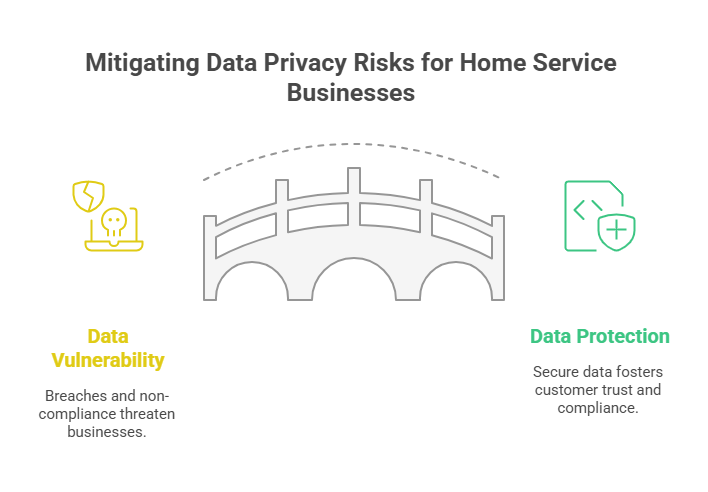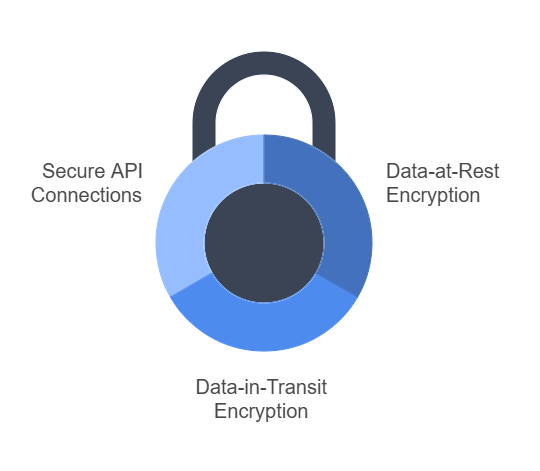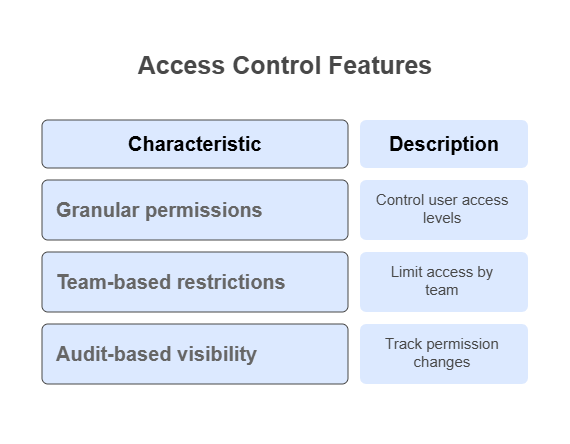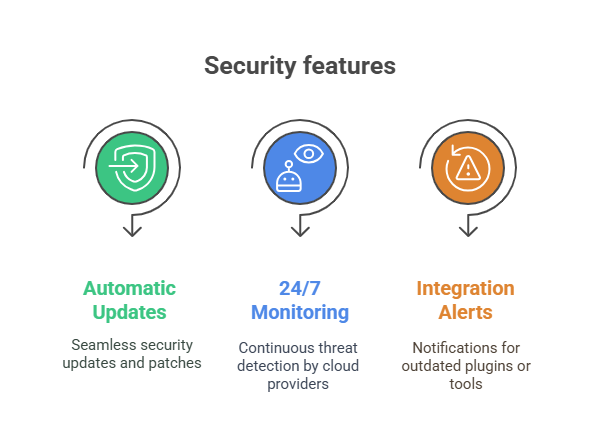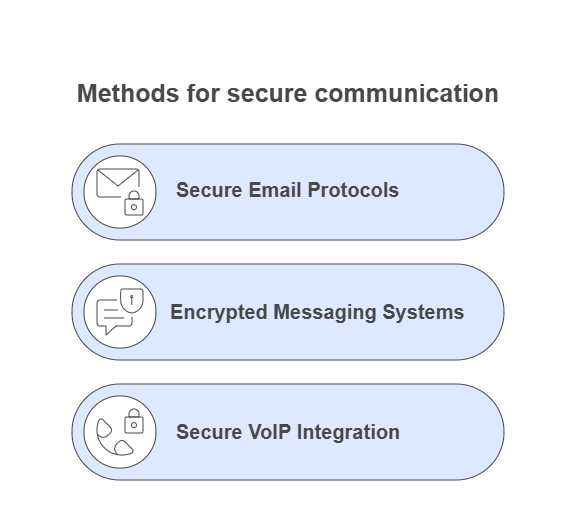Data privacy is crucial for any modern business, especially for home service providers. These businesses often handle sensitive information like customers' addresses, payment details, and personal identification. Without the right data privacy best practices, this data is vulnerable to misuse.
A single data breach can lead to financial losses, identity theft, and long-term damage to your business reputation.
But protecting customer data isn't only about avoiding penalties. It's about earning and keeping your customers’ trust. When people know their information is safe with you, they’re more likely to stay loyal and recommend your services. In today’s digital age, that trust is one of your most valuable business assets.
Understanding Data Privacy Risks
Every home service business faces data privacy risks. It's crucial to understand these risks to protect your business and your customers.
Data breaches are one of the most common threats. Hackers exploit vulnerabilities to gain access to sensitive data.
This data might include customer profiles, payment information, and confidential communications. When this data is exposed, it can lead to financial losses and damage to your brand.
Unauthorized access is another critical risk. Sometimes, insiders or external parties gain access to the company's data without permission. This can be due to weak passwords, poor access controls, or insufficient monitoring.
Compliance violations are also a significant concern. Laws like GDPR and CCPA provide clear guidelines on how businesses should handle personal data. Violating these laws, whether by neglect or ignorance, can lead to penalties, fines, and loss of customer trust.
Understanding these risks is vital. When you know what threats your business faces, you can take preventive measures. This means implementing strong security protocols, regular training, and monitoring of systems. Addressing these risks head-on not only protects your business but also builds customer confidence in your services.
5 Data Privacy Best Practices for Home Service Businesses
Implementing robust data privacy practices is essential for home service businesses to protect customer information effectively. Here are some key best practices:
1. Encrypting Data
Why it matters:
Data encryption is your first line of defense against unauthorized access. It scrambles sensitive information—like customer addresses or payment details—so even if a hacker gets hold of it, they can’t read it.
At-risk scenarios:
- When storing customer information in databases
- When sending quotes, invoices, or updates via email
- When syncing data between systems
CRM Features That Help:
Most modern CRM systems—like Salesforce, HubSpot, or Fuzen—offer end-to-end encryption:
- Data-at-rest encryption protects stored information
- Data-in-transit encryption secures information moving through the internet (e.g., via HTTPS or SSL protocols)
- Secure API connections prevent leaks when integrating with third-party tools
Some CRMs even allow you to configure custom encryption settings based on data type, adding an extra layer of control.
2. Limiting User Access
Why it matters:
Not everyone in your organization needs access to every customer detail. The more people who can see private data, the higher the chance of accidental leaks or malicious use.
At-risk scenarios:
- Field technicians accessing payment details
- Admins seeing unnecessary personal data
- Shared logins with broad permissions
CRM Features That Help:
The solution lies in role-based access controls (RBAC).
CRMs like Zoho CRM, Pipedrive, and Fuzen support:
- Granular permissions – control what users can view, edit, or delete
- Team-based restrictions – limit access based on job role or department
- Audit-based visibility – track who changed permissions or accessed sensitive modules
For instance, you can allow a technician to only see job addresses—not phone numbers or payment history.
3. Keeping Software Updated
Why it matters:
Cybercriminals actively look for vulnerabilities in outdated software. Delayed updates can leave your systems open to attacks that have already been patched by vendors.
At-risk scenarios:
- CRMs installed locally that aren’t auto-updated
- Unpatched third-party tools or plugins
- Infrequent system audits
CRM Features That Help:
Cloud-based CRMs (like HubSpot, Freshsales, or Fuzen) take care of this automatically:
- Automatic updates and security patches roll out without interrupting your workflow
- 24/7 monitoring from cloud providers ensures real-time threat detection
- Integration alerts notify you when plugins or external tools are outdated
By choosing a cloud CRM, you eliminate the manual labor of patching and securing your system.
4. Securing Communication Channels
Why it matters:
Whether you're sending a job quote, booking confirmation, or internal update—if communication happens over insecure channels, it’s easy for hackers to intercept the data.
At-risk scenarios:
- Sending unencrypted emails
- Using free chat apps for internal communication
- Client calls or messages without logging or protection
CRM Features That Help:
Advanced CRM platforms come with secure communication protocols, including:
- SSL/TLS protocols for secure emails and messages
- Native messaging systems that keep conversations within encrypted channels
- Integration with secure VoIP or helpdesk tools for encrypted customer service communication
For example, using an encrypted ticketing system or messaging add-on (like in Zoho Desk or Fuzen) helps ensure customer queries remain confidential.
5. Tracking Data Access with Audit Logs
Why it matters:
If something goes wrong—say, a data leak or unauthorized edit—you need to know who accessed what, and when. Audit logs provide that trail of evidence.
At-risk scenarios:
- Internal misuse of client data
- Unauthorized login attempts
- Regulatory audits with missing access records
CRM Features That Help:
Most robust CRMs offer built-in audit logging tools:
- Track login history by user, device, and location
- Monitor changes to contact records, notes, files, and deals
- Downloadable logs for compliance with regulations like GDPR or CCPA
Platforms like Salesforce, Zoho CRM, and Fuzen allow admins to schedule periodic log reviews, and even set alerts when suspicious behavior is detected.
Popular CRM Systems That Prioritize Data Privacy
Choosing the right CRM is essential for protecting customer data in home service businesses. Some well-known CRM platforms come with strong data privacy features:
- Zoho provides secure data storage, strong access controls, and built-in compliance tools. It’s a good option for businesses that take privacy seriously.
- Salesforce offers powerful security tools like data encryption, role-based access, and detailed tracking of who accessed what data and when.
- HubSpot is designed with GDPR compliance in mind, making it a popular choice for businesses in Europe. It ensures secure data collection and handling.
While these CRMs are reliable, they often come with high monthly or annual subscription fees.
Fuzen’s Unique No-Code Approach to CRM and Privacy
Fuzen takes a different route. Fuzen is a no-code plus AI CRM app builder. It allows you to build your own CRM without writing a single line of code, with privacy and flexibility at the core.
Here’s why Fuzen stands out:
- Tailored to Your Needs: You can design a home service business CRM that fits your exact privacy and business needs—no unnecessary features, just what matters to you.
- Cost-Effective: Unlike traditional CRMs, Fuzen doesn’t charge for software. You only pay for hosting, which keeps costs low.
- Scalable: Start simple and expand as your business grows. Fuzen lets you easily add features without needing to hire developers.
- User-Friendly: The platform is built for non-coders, so anyone on your team can manage and update your CRM.
- CRM templates: Pre-built CRM templates for quick and easy development.
With Fuzen, you’re not just choosing a tool—you’re building a system that grows with your business while keeping customer data safe.
Conclusion: Building a Privacy-First Culture
Implementing best practices for data privacy is essential for home service businesses. From encrypting data and securing communication channels to leveraging CRM features and training staff, these measures are fundamental to safeguarding customer information.
Prioritizing a culture of privacy within your organization is not just a compliance necessity; it is a strategic business move. By consistently integrating privacy considerations into daily operations, you demonstrate to customers that their data is valued and protected.
Proactive data privacy measures not only prevent potential breaches and compliance violations but also foster long-term customer loyalty. When clients trust that their information is handled securely, they remain loyal and are more likely to recommend your services. This trust translates into sustained business success and a robust reputation in the marketplace.

Pushkar is a seasoned SaaS entrepreneur. A graduate from IIT Bombay, Pushkar has been building and scaling SaaS / micro SaaS ventures since early 2010s. When he witnesses the struggle of non technical micro SaaS entrepreneurs first hand, he decided to build Fuzen as a nocode solution to help these micro SaaS builders.

